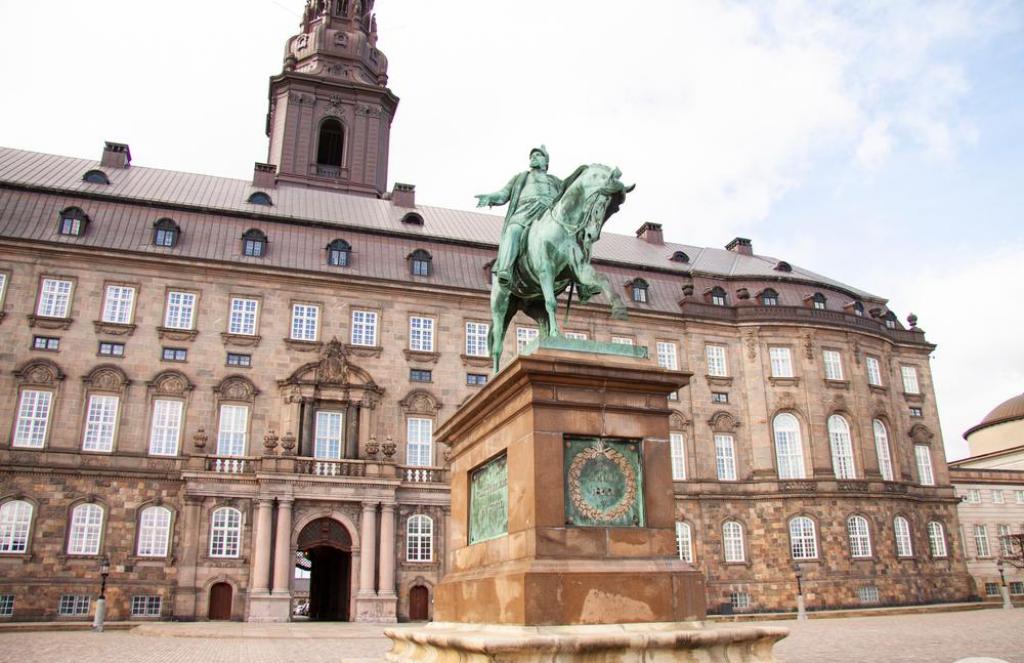Thessaloniki gets ready for its metro launch in November
The underground rapid transit lines have been under construction for almost two decades due to various project delays
 TheMayor.EU logo
TheMayor.EU logo 
The major parties in the Danish Parliament reached a consensus about the fund, Source: Depositphotos
This Nordic country doesn’t want to wait for the last war bullet to sound off before starting reconstruction
Today, the Danish government announced that it will establish a state fund aimed to provide economic, military and civil aid to war-torn Ukraine. The total amount of the fund will be 940 million euros (or 7 billion Danish crowns).
The establishment of the aid scheme was agreed upon after the main parties in parliament struck a consensus that went beyond narrow politics to affirm the commitment of the Nordic country to the welfare and continued prosperity of Ukraine in times of war and beyond.
In that respect, the largest share of the fund is still envisioned to go towards military aid, given the attrition war forming up in Donbas and the frequent missile strikes that Russia launches onto Ukrainian infrastructure and civilians.
The funding will be implemented in particular through a more flexible financial policy and redirection of part of the development funds granted by Denmark.
"We cannot wait until the last bullet is fired," emphasized the first Danish diplomat, Lars Løkke Rasmussen, presenting the project to journalists. He added: “This is largely a reflection of the wishes Ukraine has, which in addition to the military and the humanitarian aid are now also about reconstruction.”
That is why part of the fund has been set aside to cover efforts by Danish companies to start reconstructing the war-torn landscape of the Eastern European country. Admittedly, that is the smallest chunk of the total fund, with about 54 million euros envisioned for that, however, the ratio of the funds is likely to change in the future as Ukraine moves towards victory and the need for civilian aid gives way to the need for reconstruction.
The government will allocate funds in 2024-2027 to cover the cost of replacing the military aid given to Ukraine in 2022 and 2023.
It’s hard to say how much damage has been inflicted upon Ukraine, but already back in September 2022, the European Commission estimated that some 350 billion euros would be needed to restore the country to condition.

The underground rapid transit lines have been under construction for almost two decades due to various project delays

Now you can get your wine in Talence by paying directly in Bitcoin

That’s because the state has to spend money on updating the railway infrastructure rather than subsidizing the cost of the popular pass

Rethinking renewable energy sources for the urban landscape

The examples, compiled by Beyond Fossil Fuels, can inform and inspire communities and entrepreneurs that still feel trepidation at the prospect of energy transition

Now you can get your wine in Talence by paying directly in Bitcoin

The 10th European Conference on Sustainable Cities and Towns (ESCT) sets the stage for stronger cooperation between the EU, national and local level to fast track Europe's transition to climate neutrality.

At least, that’s the promise made by the mayor of Paris, Anne Hidalgo

The underground rapid transit lines have been under construction for almost two decades due to various project delays

At least, that’s the promise made by the mayor of Paris, Anne Hidalgo

Hostal de Pinós is located in the geographical centre of the autonomous region

Despite its church-y name, the district has long been known as the hangout spot for the artsy crowds

Urban dwellers across the EU are having a say in making their surroundings friendlier to people and the environment.

Forests in the EU can help green the European construction industry and bolster a continent-wide push for architectural improvements.

Apply by 10 November and do your part for the transformation of European public spaces

An interview with the Mayor of a Polish city that seeks to reinvent itself

An interview with the newly elected ICLEI President and Mayor of Malmö

A conversation with the Mayor of Lisbon about the spirit and dimensions of innovation present in the Portuguese capital














